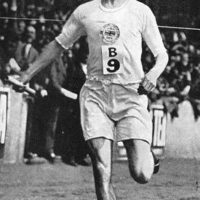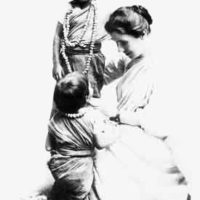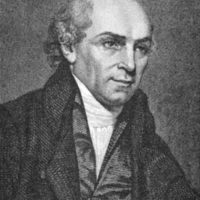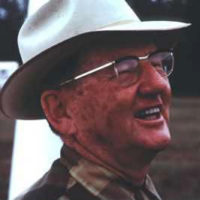When you think of some of the most influential Protestant missionaries, what names come to mind? Perhaps William Carey, Adoniram Judson, Hudson Taylor, C.T. Studd or Jim Elliott. You may not have heard of George Liele, the once-enslaved man who began serving as a missionary (first in his own country and then abroad) before any of the other men mentioned. But the Southern Baptist Convention (SBC) is hoping to change that.
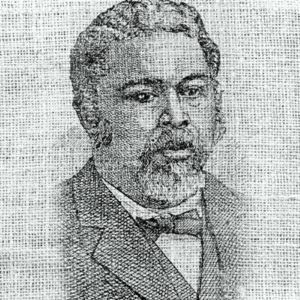 The SBC now honors this early American missionary’s legacy each year by observing George Liele Church Planting, Evangelism and Missions Day on the first Sunday in February.[1] But all Christians, not just Southern Baptists, can learn from the life of George Liele, who faithfully shared the Good News of Christ in the face of painful hardships and opposition.
The SBC now honors this early American missionary’s legacy each year by observing George Liele Church Planting, Evangelism and Missions Day on the first Sunday in February.[1] But all Christians, not just Southern Baptists, can learn from the life of George Liele, who faithfully shared the Good News of Christ in the face of painful hardships and opposition.
Evangelist to Fellow Slaves
Born into slavery in Virginia around 1750, George Liele knew hardship and oppression from an early age. As a child, he was separated from his parents and eventually lived in Georgia.
In 1773, as a young man, Liele experienced a revelation that only Christ’s work on the cross, not his own works, could give him salvation.
“I found no way wherein I could escape the damnation of hell, only through the merits of my dying Lord and Saviour Jesus Christ; which caused me to make intercession with Christ for my poor immortal soul,” Liele later wrote, “and I full well recollect, I requested of my Lord and Master to give me a work, I did not care how mean it was, only to try and see how good I would do it.”[2]
Liele was baptized in the local Baptist church and began to share God’s Word with the other Black people in his community.
Liele’s master, Henry Sharp, was a deacon in the same church. He and other white members of Liele’s church supported Liele’s ministry and made him a probationary minister. Sharp eventually gave Liele his freedom so the young evangelist could further pursue his ministry. Liele, however, continued to live with Sharp and his family as he preached to the African American community in and around Savannah. In 1775, Liele received his ordination.
According to the International Mission Board,
“He planted the first African-American Baptist church in North America, a church still in existence today.”[3]
Soon, however, the American Revolution upended Liele’s life. Henry Sharp, a Loyalist, died in battle. Some people attempted to re-enslave Liele, and he was imprisoned until a British officer, Moses Kirkland, helped Liele provide documentation of his manumission.[4]
As the British prepared to evacuate Savannah, Liele decided to leave. Kirkland encouraged him to move to Jamaica and paid for passage for Liele, his wife and his four children to Kingston, Jamaica. To pay off the debt, Liele worked as an indentured servant for Kirkland for two years.
A New Frontier
After settling in Kingston, Liele began preaching the Gospel to the local Black people, many of whom were enslaved on sugar plantations. A house church sprouted and then grew into a congregation of 350 people, including both free and enslaved Black people and a few white people. In 1791, Liele’s congregation was able to purchase land for a church, which they finished building in 1793.[5]
Liele soon faced opposition, as he had in Georgia. This time, members of Jamaica’s legislature, backed by plantation owners, maligned Liele’s ministry among the slaves, accusing him of preaching sedition.[6] He was jailed for a few years but was acquitted of the charges.
After his imprisonment, Liele traveled throughout Jamaica sharing news of Jesus Christ, and he earned income to support his wife and children by farming and running a wagon service. As a result of his ministry, four more churches, besides the one in Kingston, sprouted in Jamaica. In addition to preaching, Liele also helped establish schools for Black children, many of whom were still enslaved.
Liele’s faithful service to the kingdom of God made a lasting impact on both the United States and Jamaica. When he passed away in 1826, there were thousands of Baptist Christians in Jamaica,[7] and a constellation of churches, planted because of his ministry, was growing in Georgia, South Carolina and Jamaica.
A Lasting Impact
George Liele dedicated his life to sharing the Good News. He effectively ministered to people who shared his cultural and ethnic background. But he followed God’s leading to a new country, despite the obstacles he would face.
Liele faced false accusations and imprisonment, as some missionaries do today. His faithfulness and determination, however, surmounted the challenges of slavery, war and opposition.
Liele left a legacy of multiplying congregations in America and Jamaica. Because he chose to serve Christ in both good times and bad, he strengthened the Body of Christ and left a lasting mark on the world.
Read more news on Evangelism and World Missions on Missions Box.
[1] “5 Facts About George Liele, America’s First Baptist Missionary.” The Ethics & Religious Liberty Commission of the Southern Baptist Convention. February 5, 2021. https://erlc.com/resource-library/articles/5-facts-about-george-liele-americas-first-baptist-missionary/.
[2] Liele, George, et. al. “Letters Showing the Rise and Progress of the Early Negro Churches of Georgia and the West Indies.” The Journal of Negro History 1, no. 1 (1916): 69–92. https://doi.org/10.2307/2713517.
[3] Hildreth, Lesley. “Missionaries You Should Know: George Liele.” International Mission Board. June 26, 2018. https://www.imb.org/2018/06/26/missionaries-you-should-know-george-liele/.
[4] Liele, George, et. al. “Letters Showing the Rise and Progress of the Early Negro Churches of Georgia and the West Indies.” The Journal of Negro History 1, no. 1 (1916): 69–92. https://doi.org/10.2307/2713517.
[5] Liele, George, et. al. “Letters Showing the Rise and Progress of the Early Negro Churches of Georgia and the West Indies.” The Journal of Negro History 1, no. 1 (1916): 69–92. https://doi.org/10.2307/2713517.
[6] Morrison, Doreen. “George Liele and the Ethiopian Baptist Church: The First Credible Baptist Missionary Witness to the World.” Accessed February 2, 2022. http://bwa-baptist-heritage.org/wp-content/uploads/2016/07/Liele-Morrison.pdf.
[7] Hildreth, Lesley. “Missionaries You Should Know: George Liele.” International Mission Board. June 26, 2018. https://www.imb.org/2018/06/26/missionaries-you-should-know-george-liele/.

